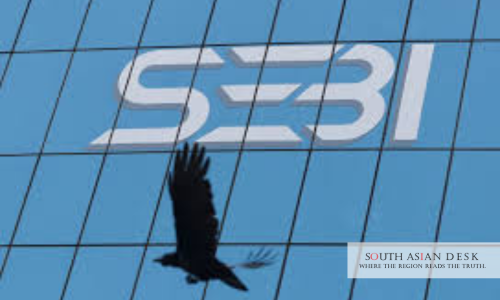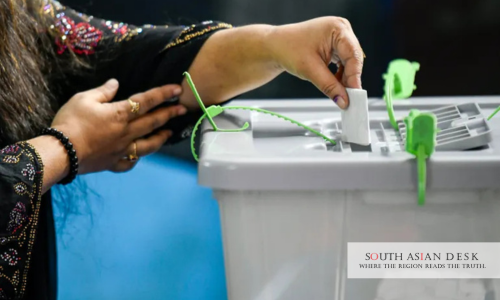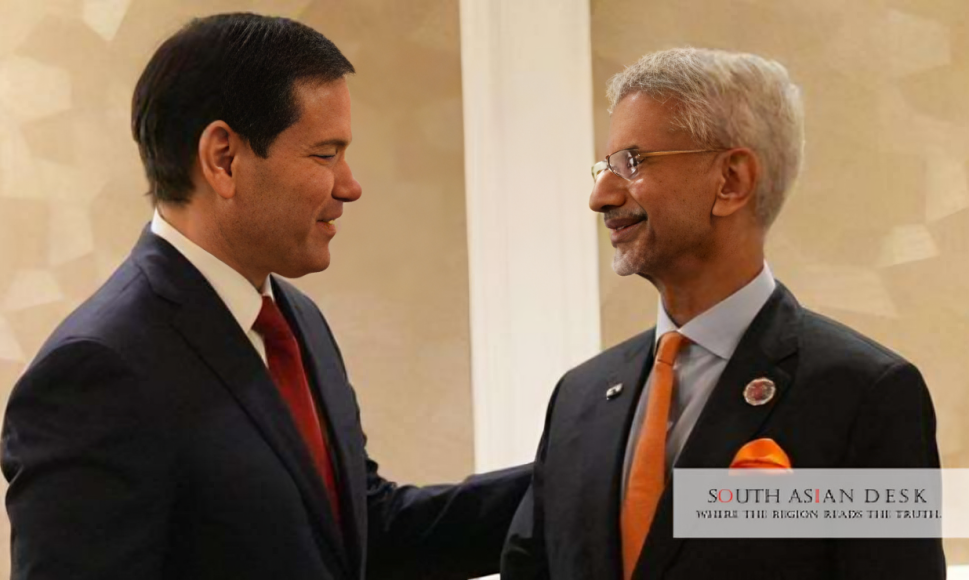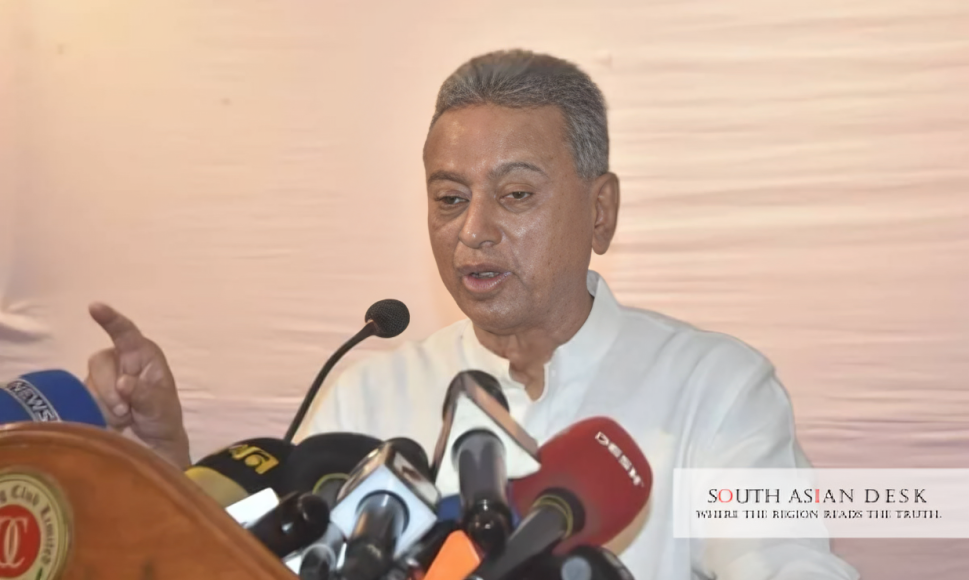India’s SEBI bars 13 individuals and Hindu Undivided Families (HUFs) from the securities market for engaging in front-running activities, as detailed in an order issued on Thursday, October 23, 2025. The action targets violations spanning January 1, 2021, to October 31, 2022, on the National Stock Exchange (NSE) equity segment. SEBI imposed restraint periods of one to three years and monetary penalties totalling Rs 98 lakh. The scheme involved trading ahead of substantial orders from three family trusts, yielding unlawful gains of Rs 2.06 crore, already disgorged through settlements.
Why This SEBI Front Running Ban 2025 Matters in South Asia
The SEBI bars 13 individuals from market access underscores India’s commitment to transparent trading, a model for regional neighbours like Pakistan and Bangladesh facing similar market integrity challenges. With South Asian stock exchanges increasingly interconnected via cross-border investments, such India securities regulator bans deter predatory practices that erode investor trust across borders. This enforcement bolsters the region’s financial stability, protecting retail participants who comprise over 70 per cent of NSE’s demat accounts. By addressing front-running a scourge that distorts price discovery, the move signals robust oversight, potentially inspiring harmonised regulations under bodies like SAARC financial forums.
Details of the India Securities Regulator Bans
SEBI’s order, reference QJA/SS/IVD-1/ID16/31699/2025-26, stems from an NSE examination report dated May 19, 2023. It identifies a coordinated front-running operation linked to NJK Securities, a sub-broker authorised by Angel One Limited. The “Big Client” comprised three entities: Bharat Kanaiyalal Sheth Family Trust, Ravi Kanaiyalal Sheth Family Trust, and Arjun Discretionary Trust, managed through Safe Enterprises.
Front-runners accessed non-public information on impending block orders via an employee chain: from the Big Client’s investment head to NJK’s proprietor (Noticee No. 2, settled), then disseminated to connected parties. This enabled 328 instances of front-running patterns, where buy or sell orders preceded the Big Client’s trades, followed by swift square-offs often within two minutes to capture price impacts.
The 13 barred entities include employees, spouses, and clients of NJK Securities. Shankar Tukaram Vadatkar, an NJK employee, faces the longest restraint of three years, reflecting his central role in mirroring trades. Sakshi Shankar Vadatkar (his spouse), Chaitali Shah, and several HUFs like Shah Swapnil Uday HUF and Dipesh Mehta HUF receive two-year bans. One-year prohibitions apply to Randhir Virji Shah HUF, Pinakin Hansraj Shah HUF, Punaiben Hansraj Shah, Ankesh Mahendra Jain HUF, and Dr Kumaraswami R Dussa HUF.
| Noticee | Name | PAN | Restraint Period | Penalty (Rs Lakh) |
| 6 | Shankar Tukaram Vadatkar | ADKPV7740H | 3 years | 10 |
| 7 | Sakshi Shankar Vadatkar | AMOPM1205F | 2 years | 5 |
| 8 | Chaitali Shah | AMPPS4417G | 2 years | 15 |
| 10 | Shah Swapnil Uday HUF | AASHS9305J | 2 years | 12 |
| 12 | Dipesh Mehta HUF | AAHHD8379J | 2 years | 10 |
| 14 | Piyush Mehta HUF | AAPHP0325N | 2 years | 12 |
| 15 | Hansraj Randhir Shah HUF | AAAHH0445Q | 2 years | 10 |
| 17 | Randhir Virji Shah HUF | AAEHR6492K | 1 year | 5 |
| 19 | Pinakin Hansraj Shah HUF | AAJHP5561J | 1 year | 8 |
| 20 | Punaiben Hansraj Shah | AAPPS2760Q | 1 year | 5 |
| 21 | Raahul Hansraj Shah HUF | AARHR6643F | 2 years | 6 |
| 27 | Ankesh Mahendra Jain HUF | AATHA3966J | 1 year | 5 |
| 29 | Dr Kumaraswami R Dussa HUF | AAIHD5369P | 1 year | 5 |
Penalties, levied under Section 15HA of the SEBI Act, range from Rs 5 lakh to Rs 15 lakh, calibrated by factors like trade volume and profits under Section 15J guidelines. SEBI directed depositories to freeze demat accounts and banks to restrict debits except for penalty payments. Open derivative positions must close within three months.
The Front-Running Scheme Unraveled
Investigators uncovered 424 common trading days between front-runners and the Big Client, accounting for 57.79 per cent of gross traded value. Of these, 363 yielded profits totalling Rs 2.11 crore, with 80.38 per cent from classic buy-buy-sell or sell-sell-buy sequences. In 301 instances, matching percentages with Big Client orders hit 40-100 per cent.
Evidence included call detail records showing 617 interactions between NJK’s proprietor and his employee, plus disproportionate salaries, Rs 47.39 lakh from 2018-2023, up to 46 per cent of brokerage income as kickbacks for leaks. Trading profiles shifted dramatically during the period: intra-day profits surged 236 per cent for key accounts, ceasing post a June 29, 2022, SEBI query.
SEBI rejected defences like procedural delays or lack of direct proof, applying a “preponderance of probabilities” standard via circumstantial links. “The connectedness between alleged entities, behavioural consistency, trading pattern, and commonality of trades… cumulatively show the strong probability against these Noticees,” the order states.
Angel One settled separately for Rs 21 lakh over record-keeping lapses under 2018 and 2009 circulars. Six other noticees settled on December 19, 2024, disgorging the full Rs 2.06 crore plus 12 per cent interest, without admitting guilt.
Broader Implications of SEBI Front Running Ban 2025
This case highlights systemic risks in sub-broker networks, where authorised persons handle client orders without adequate surveillance. Front-running erodes market fairness, as substantial trades by institutional clients like these trusts often 10-50 times average volumes temporarily skew prices, benefiting insiders at others’ expense.
In 2025 alone, SEBI has intensified India securities regulator bans, with over 50 front-running probes yielding Rs 500 crore in recoveries. The regulator’s tech-driven surveillance, including AI pattern detection, flagged this scheme amid NSE’s daily 1.5 crore trades.
For South Asia, where bourses like BSE Sensex and Pakistan’s KSE-100 see rising foreign inflows, such actions foster confidence. Neighbouring regulators, including Bangladesh’s BSEC, have echoed similar crackdowns, but India’s scale sets precedents for cross-border cooperation.
Background: Evolution of Front-Running Enforcement
Front-running, prohibited under PFUTP Regulations since 2003, involves trading on unpublished price-sensitive information. SEBI’s arsenal expanded post-2019 amendments, equating it to fraud under Regulation 4(2)(q). Landmark cases like SEBI v. Bhavesh Pabari (2019) affirmed circumstantial evidence sufficiency.
This probe, initiated via NSE alerts, involved show-cause notices to 30 entities on January 24, 2024. Hearings spanned February 2025 to August 2025, with final submissions by October 6, 2025. Objections on adjudication timelines three years from investigation were dismissed, citing no prejudice to rights.
What’s Next when SEBI Bars 13 Individuals
Banned entities must comply immediately, with appeals possible to Securities Appellate Tribunal within 45 days. SEBI may pursue further probes into related flows, like unexplained funding in client accounts. Investors should verify sub-brokers’ compliance via SEBI’s SCORES portal.
As markets rebound theNSE turnover hit Rs 150 lakh crore in FY25. This SEBI bars 13 individuals from market episode reinforces deterrence. Expect tighter norms on order routing by 2026, enhancing algorithmic oversight.
The SEBI front running ban 2025 exemplifies vigilant regulation, safeguarding equitable access for all.
Published in SouthAsianDesk, October 24th, 2025
Follow SouthAsianDesk on X, Instagram, and Facebook for insights on business and current affairs from across South Asia.






